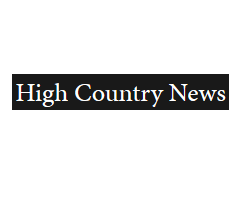Interior Department's Coal Reboot Ignores Tribes and Curtails Public Input

By Carl Segerstrom
June 4, 2019 - Within miles of the Northern Cheyenne Tribe’s reservation in southeastern Montana, coal mines leave claw marks on the landscape and smokestacks rise above the plains. Most of the coal mined and burned in the area comes from land leased by the federal government, and the Northern Cheyenne Tribe wants a voice in how the land, water, atmosphere and community is affected by federal coal leasing policies.
But the tribe isn’t being consulted by the Trump administration’s Bureau of Land Management, as they speed through an environmental review process to restart federal coal leasing. A 15-day public comment period, which ends on June 6, is all the say that tribes, environmental organizations, states and affected communities will get on plans with far-reaching consequences for the environment and their communities. (Update: On June 4, BLM announced they have extended the public comment period five days to June 10. Stakeholders requested an extension of between 45 and 90 days.)
“What we expected is exactly what happened,” said William Walksalong, tribal administrator for the Northern Cheyenne Tribe. “We asked (now-resigned Interior Secretary Ryan) Zinke for government-to-government consultation and haven’t received a response yet.” After more than a year of ignoring the tribe’s requests for consultation, it seems the only place the Trump administration will see the tribe is in federal court — where the Northern Cheyenne, environmental groups, and state attorneys general recently blocked the administration’s effort to lift an Obama-era leasing moratorium. The treatment of the Northern Cheyenne and rushed review process is in keeping with Trump administration policies that have weakened public input and dismissed tribal voices to promote extractive industries on public lands.
The ongoing struggle between stakeholders asking for a serious review of the leasing program and the Trump administration’s desire to unfetter said program can be traced back to a 2016 coal leasing moratorium put in place by Obama administration Interior Secretary Sally Jewell. The federal government paused leasing in order to take a holistic look at the environmental and community impacts of offering public land up for coal mining. That short-lived review, which was initiated after listening sessions with tribal nations and affected communities, was the program’s first since 1979.
However, with the election of Donald Trump, the planned long, hard look at the coal program turned into a sideways glance. Following an executive order to promote President Trump’s “energy dominance” agenda, Zinke canceled the moratorium and review shortly after taking office in March 2017.
The decision to cancel the review was rebuked by a federal district court in Montana this April. In his order, Judge Brian Morris found that the attempt to bypass environmental reviews and resume leasing was “arbitrary and capricious.” The ruling did not mandate that the agency continue the Obama administration’s planned review, but said some sort of environmental impact analysis was necessary to justify restarting the program.
Less than a month after that ruling, the Trump administration’s Bureau of Land Management released a draft environmental assessment designed to meet the judge’s request. In the terse assessment, BLM questions the premise of the judge’s ruling, dismisses the cumulative impacts of coal leasing on socioeconomics and water quality, and states that they aren’t obligated to consult with tribal nations. The agency also argues that because current policies favor coal extraction, and because each individual lease is subject to environmental analysis, there is no need to review the entire program.
Environmental advocates, the Northern Cheyenne Tribe and state attorneys general from California, Washington, New York and New Mexico disagree and have taken issue both with the reasoning behind the assessment and the short time period for public comment. In a letter to Interior Secretary David Bernhardt, Northern Cheyenne Tribal President Rynalea Whiteman Peña again asked the Interior Department to consult with the tribe and offer sufficient time for public comment. The department’s position “that no consultation is necessary with affected Indian tribes violates your sacred trust obligation to the Northern Cheyenne Tribe and other Tribes… and constitutes a shortsighted and unwise approach to land management,” she wrote.
Jenny Harbine, who is leading the case against the federal government’s attempt to restart federal leasing, called the environmental assessment a “sham” and an attempt by the Trump administration to avoid a serious look at the impacts of the coal program. “The contempt for affected communities is indefensible,” Harbine said.
While the Trump administration tries to revive a crumbling industry from Washington, D.C., the view from the Northern Cheyenne Tribe shows the reality of a struggling industry. “We’re surrounded by coal, and we’re watching companies go bankrupt and the market take a nose dive,” Walksalong said. Rather than doubling down on an industry that’s losing in the energy marketplace, the Northern Cheyenne Tribe would like to shift the conversation to planning for the future. Walksalong said training coal miners to do remediation for land damaged by coal mining and power plants, and moving to renewable energy sources is what the tribe is working towards. But he isn’t expecting much help from Trump or his administration. “There’s nothing stopping a man like that,” Walksalong said. “He doesn’t listen at all, and he’ll make every effort to help a floundering industry.”

